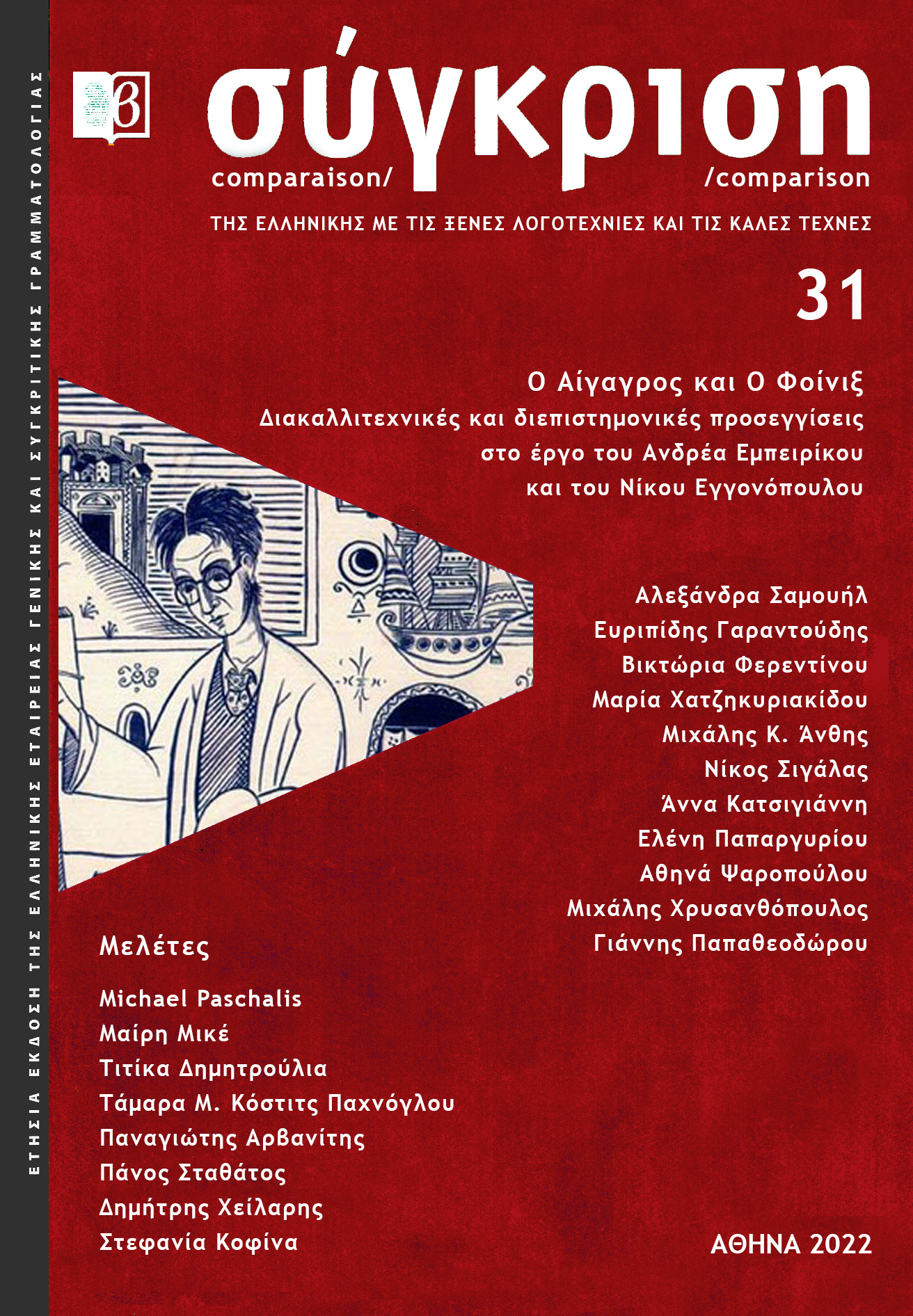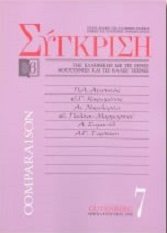ΑΛΕΞΑΝΔΡΑ ΣΑΜΟΥΗΛ, Ο Ορφέας, ο Φοίνικας και η Μαρίκα η Πολίτισσα
Abstract
Orpheus, the Phoenix and Marika Politissa
This paper concerns the symbols and masks in the poetry of Nikos Engonopoulos drawn from the history of religions, the daemonology and the various realms of esoterism, which highlights at the same time the continuum between his visual and poetic work. More precisely this paper concerns, initially, the myth of the phoenix, a symbol of a living eternity, as he dies and is reborn from his ashes, with which the poet identifies in many of his poems with the most obvious “I zoi kai o thanatos ton poiiton”. In this poem from the cryptic references to Lactantius and Petrarca it follows that the author of Engonopoulos poetry is the dying beauty, personified here in Petrarca’s Laura, which transforms the poet into a phoenix as he aspires his descent into Ades in order to memorise the loss of her mortal beauty, ensuring in this strange way his poetic survival.
Almost the same subject –the desire to go down to Ades– is developed by Engonopoulos in another of his poems, entitled “O mysticos poiitis”, a poet whose erotic desire concerns the horrible Styx, synonymous with the world of the dead. It turns out that behind Styx and the other female figures of his poetry lies the real Muse of Engonopoulos, the mythical Lilith, the female demon who after the sexual encounter with her victims disappears forcing the poet to transform himself into a phoenix to memorise her demonic beauty.
Article Details
- How to Cite
-
Σαμουήλ Α. (2022). ΑΛΕΞΑΝΔΡΑ ΣΑΜΟΥΗΛ, Ο Ορφέας, ο Φοίνικας και η Μαρίκα η Πολίτισσα. Comparison, 31, 3–17. https://doi.org/10.12681/comparison.31271
- Issue
- Vol. 31 (2022)
- Section
- Articles

This work is licensed under a Creative Commons Attribution-NonCommercial-ShareAlike 4.0 International License.
Authors who publish with this journal agree to the following terms:
- Authors retain copyright and grant the journal right of first publication with the work simultaneously licensed under a Creative Commons Attribution Non-Commercial License that allows others to share the work with an acknowledgement of the work's authorship and initial publication in this journal.
- Authors are able to enter into separate, additional contractual arrangements for the non-exclusive distribution of the journal's published version of the work (e.g. post it to an institutional repository or publish it in a book), with an acknowledgement of its initial publication in this journal.
- Authors are permitted and encouraged to post their work online (preferably in institutional repositories or on their website) prior to and during the submission process, as it can lead to productive exchanges, as well as earlier and greater citation of published work (See The Effect of Open Access).




